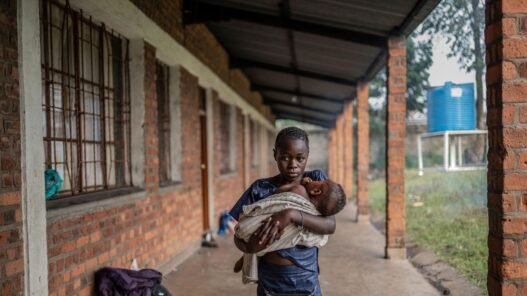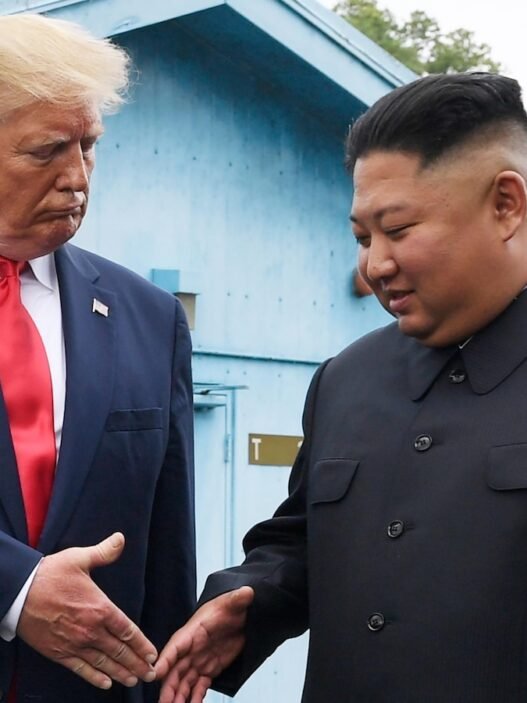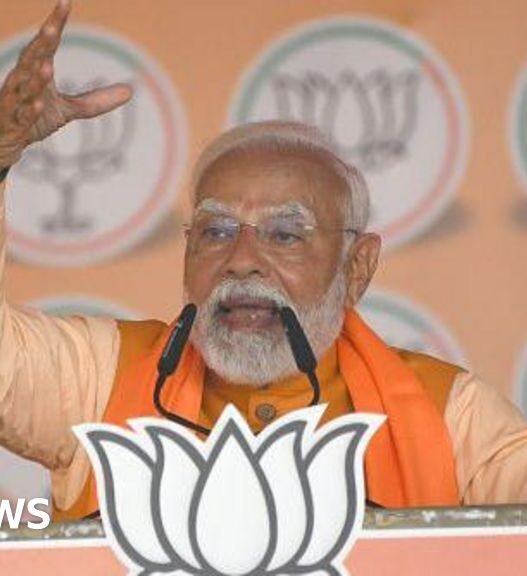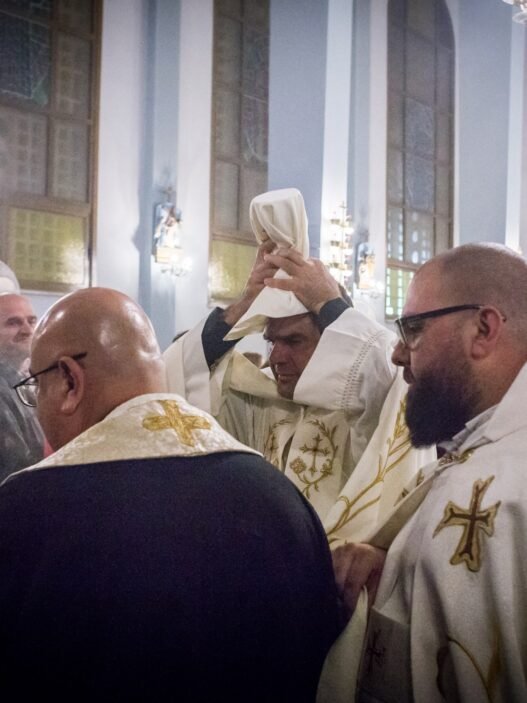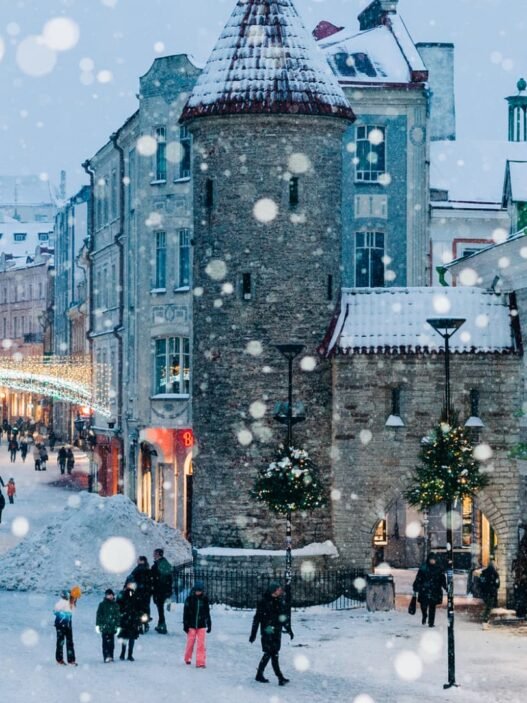GOMA, Congo — None of Zawadi Sifa’s seven children have known life without fear and the constant threat of violence.
Her story mirrors that of thousands of other families displaced by violence in eastern Congo, where Rwanda-backed rebels last month seized the key city of Goma, spreading their footprint in a blitz offensive in the mineral-rich region.
“Each time I give birth … we are fleeing,” Sifa said as she rocked a baby, her youngest, in her arms.
Several weeks ago, the M23 rebels — the most prominent among more than a 100 armed groups vying for dominance in the region — began their advance toward Goma, North Kivu’s provincial capital, in a major escalation of the yearslong fighting with government forces.
Sifa’s family first made it to a displacement camp in Sake, another town that was then taken by the rebels. They then moved to a camp on the outskirts of the city, but as the rebels made their way there as well, they moved to a parish deeper inside the city, where they sheltered with hundreds of others.
Last week, the rebels declared Goma was firmly in their hands and moved to solidify their control of the city.
Water and electricity were slowly restored, and schools and shops began reopening. Aid workers and volunteers scrambled to collect dead bodies off the streets under the watchful eye of M23 patrols. Since late January, the latest spasm of violence has left some 3,000 people dead and nearly as many injured.
But Sifa and others displaced say their misery is far from over.
The fighting in Congo, dating back decades, is one of Africa’s longest conflicts — one that has displaced 4.6 million people and which the United Nations has called “one of the most protracted, complex, serious humanitarian crises on Earth.”
Even before the fighting intensified last month, Goma, a critical humanitarian hub close to the border with Rwanda, was already hosting 700,000 displaced.
Over the past two weeks, the displacement camps surrounding the city — where over 300,000 people had sought refuge — came under heavy bombardment from the fighting between the rebels and the army, UNHCR spokesperson Matt Saltmarsh said.
That forced many to flee again, like Sifa’s family — looking for shelter in churches, schools, offices or with host families.
“Millions of people were already displaced by years of conflict … and humanitarian needs were massive,” said the International Organization for Migration. “With the current alarming upsurge in fighting, an already dire situation is rapidly becoming very much worse.”
Sifa first fled her village of Kasharo in 2012. She eventually went back but when fighting intensified two years ago, she fled with her family to Sake, their first displacement camp.
When the M23 seized Sake last month, the family fled to another displacement camp, in Rusayo, on the outskirts of Goma. And when fighting closed in on them again, the family found shelter at the parish.
At first, they stayed inside the parish school building. Then, they were told to stay outside. And when the rebels declared they were the new law of the land, the local priest asked them to go back to where they came from.
The priest declined to speak to The Associated Press.
Aid workers said they are worried that some of the displaced are returning to unsafe areas.
“Many of these places are still conflict zones or lack basic services like housing, clean water,” said Rose Tchwenko, Mercy Corps country director.
On Thursday, the rebels held a rally at Goma’s stadium, promising safety under their administration as they try to shore up public support amid growing international pressure.
Speaking to the gathering, Corneille Nangaa, a rebel leader, said the city has been “liberated and sanitized” and that normal life can resume.
But U.N. human rights experts dispute those claims — they say the situation is dangerous, especially for women and girls amid reports of sexual violence, targeted killings, forced conscription and arbitrary arrests.
The U.N. Secretary-General António Guterres issued an urgent appeal to the rebels and their Rwandan backers on Thursday to “silence the guns” and stop the escalating fighting, stressing that there is no military solution to the conflict.
“It is time for mediation. It is time to end this crisis. It is time for peace,” said Guterres, who will be heading to Ethiopia next week for a conference “where this crisis will also be front and center.”
Going back to her village is not an option for Sifa.
“I learned that those who tried to return were raped and others died,” she said. “We are going to stay a little longer in Goma” even if it means living on the street.
She spends her days trying to get food and water, either by begging or spending her last savings, and looking after her children, two of them ill. She sweeps the concrete floor around their bundled belongings: a couple of battered pots and some clothes.
“Since 2012, we have been fleeing the war … I have nowhere else to go,” she said as she cooked ugali, a meal made from corn flour she managed to get earlier in the day. “We do not know what to do.”
___
Pronczuk reported from Dakar, Senegal.
___
The Associated Press receives financial support for global health and development coverage in Africa from the Gates Foundation. The AP is solely responsible for all content. Find AP’s standards for working with philanthropies, a list of supporters and funded coverage areas at AP.org.
